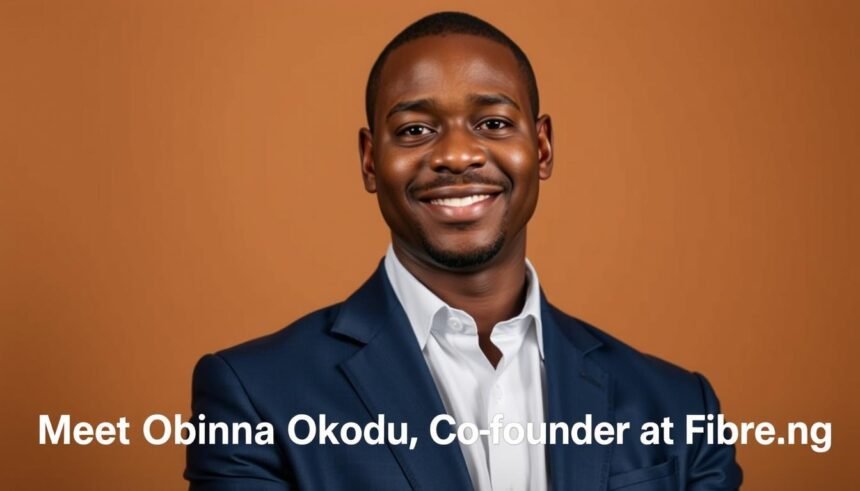Imagine graduating from MIT with dual degrees in engineering and management, then working at a top investment bank—only to leave it all behind to tackle housing challenges in Lagos. That’s exactly what one visionary entrepreneur did. Born in the U.S. but shaped by his upbringing in Nigeria, he combined his technical expertise and financial acumen to address a problem millions face daily: unreliable rental markets.
After gaining experience at Morgan Stanley, he returned home in 2016 to co-launch a startup alongside two partners. Their mission? To simplify renting for Nigerians through tech-driven solutions. The platform they built streamlined processes for both landlords and tenants, turning personal frustrations into a scalable business model.
By 2018, his innovative approach earned him a spot on Forbes’ list of Africa’s most promising young entrepreneurs. What sets him apart? A blend of global education, local understanding, and a collaborative spirit. His story reflects a growing trend of leaders using international experience to solve regional challenges.
Key Takeaways
- MIT graduate with expertise in civil engineering and management science
- Transitioned from investment banking to entrepreneurship to solve housing issues
- Co-founded a rental platform in 2016 with two partners
- Recognized by Forbes in 2018 for impactful innovation
- Combines technical knowledge with cultural insights for market-specific solutions
The Vision Behind Obinna Okwodu – Co-founder – Fibre.ng
High rents in Lagos weren’t just statistics—they were barriers crushing entrepreneurial dreams. After completing his studies abroad, the future co-founder returned to Nigeria in 2016. He discovered a broken system where young professionals paid two years’ rent upfront, forcing many to abandon business ventures.
From Personal Experience to Market Disruption
Watching friends relocate overseas after failed housing negotiations became a turning point. “People shouldn’t have to choose between affordable homes and building companies,” he later reflected. This frustration birthed a mission: redesign Nigeria’s rental ecosystem through tech-driven fairness.
Leveraging Global Expertise for Local Impact
His MIT engineering background helped analyze housing supply chains, while management training identified payment bottlenecks. Wall Street experience proved crucial in creating risk-sharing models that protected both tenants and property owners.
The solution combined Silicon Valley’s agile startup culture with African market realities. By introducing flexible leasing terms, the platform removed upfront cost barriers—a game-changer for Nigeria’s emerging workforce.
Overcoming Nigeria’s Rental Market Challenges
In Lagos, securing a home once meant handing over two years’ salary before moving in. Landlords routinely demanded 24 months’ rent upfront, locking out young professionals and families. Coupled with a 100-day average search time, Nigeria’s housing crisis became a talent drain – skilled workers left the country rather than face financial paralysis.

Innovative Flexible Leasing Solutions
The traditional system created a standoff. Property owners feared defaults, while tenants couldn’t afford massive upfront payments. A breakthrough came when tech innovators redesigned the rules:
| Aspect | Traditional Model | New Solution |
|---|---|---|
| Payment Terms | 24 months upfront | Monthly installments |
| Search Duration | 100+ days | Under 3 weeks |
| Risk Management | Tenant bears all risk | Shared accountability |
Early skeptics changed their tune when 12 test properties leased rapidly – proof that flexibility could work. The model used smart contracts to protect both parties, with automatic rent collection easing landlord concerns. For tenants, it meant keeping savings for businesses instead of property deposits.
This shift didn’t just ease housing access. It kept skilled workers in Nigeria, fueling economic growth that benefits entire communities. As one early adopter noted: “Finally, we’re building trust instead of barriers.”
Fibre.ng’s Expansion and Impact Across Africa
What if renting a home could be as simple as streaming a movie? This vision drives a tech platform reshaping housing access from Lagos to Nairobi. By tackling Africa’s rental challenges head-on, the company now eyes continental expansion with proven solutions.

Monthly Rent Payments vs. Exorbitant Upfront Costs
Gone are the days of emptying savings for two years’ rent. The new model lets tenants pay monthly while covering landlords quarterly. See how numbers stack up:
| Factor | Old System | New Approach |
|---|---|---|
| Upfront Payment | 24 months | 1 month |
| Tenant Fees | 20-25% | 15% |
| Search Time | 100 days | 3 days |
This shift keeps ₦450 million ($1.5M) circulating in tenants’ pockets annually. Families now invest in businesses instead of property deposits.
Building Trust with Proven Success Stories
Over 200 properties currently list on the platform, with landlords receiving guaranteed payments. “I tripled my occupancy rate without payment headaches,” shares a Lagos property owner. The secret? Automated rent collection and transparent contracts.
Unlocking Real Estate Investment Opportunities
A new Secure platform lets anyone own fractional property shares. Investors tap into Nigeria’s $3.5 billion residential market, capturing up to 9% yields previously lost to inefficiencies. The upcoming sales platform already manages $10M in homes with 3% transaction fees.
From Kenya to South Africa, similar housing challenges await solutions. With $790,000 in funding and growing demand, this innovation shows how tech can turn market gaps into opportunities for millions.
Conclusion
Transforming personal frustrations into systemic solutions, one leader’s journey highlights the power of tech-driven change in Africa’s housing market. Starting with Lagos’ rental crisis, innovative approaches have slashed search times from months to days while replacing years of upfront payments with manageable monthly plans. This shift didn’t just ease housing access—it kept skilled workers in Nigeria, fueling broader economic growth.
The platform’s success stems from blending global expertise with local realities. By combining financial safeguards for landlords with flexible terms for tenants, it created trust in a broken system. Recognition from Forbes underscores how such homegrown solutions can reshape entire sectors.
Looking ahead, the vision extends beyond rentals. Plans for new residential developments aim to tackle housing shortages at their source. As tech continues bridging gaps between markets and communities, this model offers a blueprint for solving infrastructure challenges across the continent.
FAQ
How does Fibre.ng address high upfront rental costs in Nigeria?
The platform replaces traditional yearly payments with flexible monthly rent plans. This reduces financial strain on tenants while ensuring landlords receive steady income through secure, tech-backed agreements.
What makes Fibre.ng different from other real estate startups?
Unlike conventional models, it combines global fintech strategies with deep local market insights. Features like credit scoring and digital lease management create fair solutions for both property owners and renters.
How does Fibre.ng build trust in markets with payment uncertainties?
Transparent user reviews, verified property listings, and partnerships with reputable estate agencies foster reliability. Success stories across major Nigerian cities demonstrate its consistent track record.
Can landlords benefit from switching to monthly rental models?
Yes. Property owners gain access to a larger pool of qualified tenants, reduced vacancy periods, and predictable cash flow. The system also minimizes risks of payment defaults through smart contracts.
Is Fibre.ng expanding beyond Nigeria’s housing market?
While currently focused on solving Nigeria’s rental challenges, the company has laid groundwork for pan-African growth. Its scalable tech infrastructure adapts to diverse rental regulations across the continent.
How does the platform improve real estate investment opportunities?
By standardizing rental processes and reducing payment risks, Fibre.ng attracts more investors to Africa’s property sector. Data-driven insights help stakeholders identify high-potential markets and housing trends.






